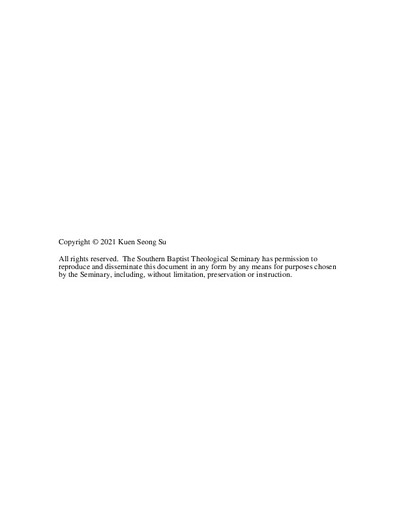| dc.description.abstract | Matthean commentators have often conducted extensive textual, linguistic, and grammatical analysis about the oracles of the seven woes in Matthew 23. Moreover, we have discovered that the majority of the Matthean scholars offer thorough theological interpretation and careful exegesis along with the Greek text in Matthew 23. Nevertheless, much of the theological analysis and discussions are far too brief to highlight the significance of the comprehensive flow of thought between the oracles of the seven woes and Jesus’ lamentation in Matthew 23. They often overemphasize the individual woes, and thus their discussions underline little comprehensive flow of thought in Matthew 23. Neither commentators’ nor scholars’ discussions are adequately satisfying in addressing the significance of the seven woes and laments in Matthew 23. The interpretation of the Pharisaic hypocrisy is inconsistent with the entire Matthean context (cf. Matt 5:48; 19:21; 22:37-40; 23:13-36). For this specific reason, particular attention, and careful research upon the oracles of the seven woes, Jesus’ lamentation, and reconsideration of the Matthean interpretation of the Pharisaic hypocrisy is essential. Hence, the purpose of this study, primarily, is to discuss the significance of the seven woes and laments in Matthew 23 which conveys two core messages: First, a severity of warning (Matt 23:13-36; cf. 23:1-12); second, an invitation to life – redemption and salvation (Matt 23:37-39). Secondarily, we hope to perform a scrupulous examination to evaluate the difference and common significance (or the intersection point of significance) between and within the oracles of the seven woes and laments. Thirdly, we are committed to observe a closer Matthean interpretation of the Pharisaic hypocrisy in Matthew 23. | en_US |

